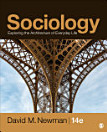Talking with Doctors
આ ઇ-પુસ્તક વિશે
Talking with Doctors is the story of Newman's efforts, at a time of great stress and even impending death, to wend his way through the dense thicket of medical consultations in search of a physician and a treatment that offered the possibility of survival. It is the story, especially, of the harrowing process of assessing conflicting "expert" opinions and, in so doing, of making sense of the priorities, personalities, and vulnerabilities of different doctors. All too often, he found, the leading specialists to whom he was sent were strangers in the consulting room-and strangers who became stranger still, both cognitively and emotionally, when ambiguous findings pushed them to the outer limits of their training and experience. Newman writes poignantly of his sense of powerlessness and desperation, of the painstaking means by which he ascertained what could be known about his tumor, and of the fortuitous events that finally led him to life-saving help.
Talking with Doctors is a compelling, absorbing, unsettling story that touches a collective raw nerve about the experience of doctors and medical care when life-threatening illness leads us to subspecialists at major medical centers. Probing the nature of medical authority and the grounds of a trusting doctor-patient relationship, Newman illuminates with grace and power what it now means for a patient to participate in life-and-death medical decisions.







